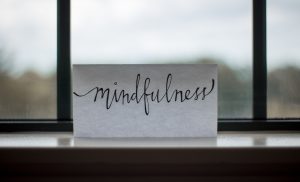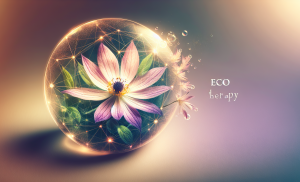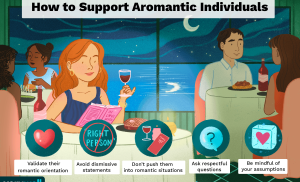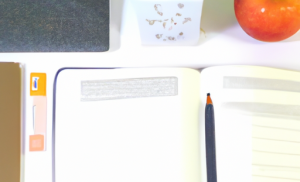Can Aromatherapy Or Essential Oils Help In Managing Stress?
Stress is a common hurdle that many of us face on a daily basis, but what if there was a natural solution to help alleviate some of that tension? In the quest for stress relief, the world of aromatherapy and essential oils has become increasingly popular. The question then arises: can aromatherapy or essential oils truly help in managing stress? In this article, we will explore the potential benefits and drawbacks of utilizing these aromatic remedies to find out if they can indeed offer a soothing touch amidst life’s hectic moments. So, take a deep breath and let’s embark on this fragrant journey together.
PHL Quick Picks
Benefits of Aromatherapy for Stress Management
Research on the effectiveness of aromatherapy
Aromatherapy, the practice of using essential oils from plants to enhance physical and psychological well-being, is gaining popularity as a natural and holistic approach to stress management. Numerous studies have explored the effectiveness of aromatherapy in reducing stress levels and promoting relaxation. The research suggests that certain essential oils have calming properties that can help alleviate stress and anxiety. While more extensive research is needed, the existing studies provide promising results, making aromatherapy a viable option for stress relief.
How aromatherapy works
Aromatherapy works by stimulating the sense of smell, which then triggers emotional and physiological responses in the body. When the molecules from essential oils are inhaled, they travel through the olfactory system and directly affect the limbic system in the brain, responsible for emotions and memory. This direct connection between scent and emotions is what makes aromatherapy an effective stress management tool. The pleasing aroma of essential oils can evoke positive feelings, reduce anxiety, and promote relaxation, helping you unwind and manage stress more effectively.
Most effective essential oils for stress relief
Several essential oils have been recognized for their potential in stress relief and relaxation. Here are some of the most effective ones:
Specific Essential Oils for Stress Relief
Lavender oil
Lavender oil is widely known for its calming and soothing properties. Its floral scent helps reduce stress, anxiety, and nervousness. Lavender oil promotes relaxation and can even improve sleep quality, making it an excellent choice for those struggling with stress-related sleep issues.
Chamomile oil
Chamomile oil has been used for centuries as a natural remedy for stress and anxiety. Its gentle and sweet scent helps promote relaxation, ease tension, and soothe the mind. Chamomile oil can also aid in sleep and improve overall well-being.
Bergamot oil
Bergamot oil is derived from the peel of the bergamot fruit and is commonly used in aromatherapy for its uplifting and mood-enhancing properties. It helps relieve stress, anxiety, and depression while promoting a sense of calm and relaxation. Bergamot oil can be particularly beneficial for those experiencing emotional distress or mood swings.
Ylang ylang oil
Ylang ylang oil is renowned for its delicate and exotic aroma. It has a balancing effect on emotions and helps reduce anxiety, nervousness, and tension. Ylang ylang oil is often used to promote relaxation, boost mood, and enhance overall well-being.
Frankincense oil
Frankincense oil, with its warm and woody scent, has been used for centuries in religious and spiritual ceremonies. It aids in relaxation, deepens breathing, and promotes a sense of tranquility and inner peace. Frankincense oil can be especially beneficial for those seeking emotional balance and stress relief.
Rose oil
Rose oil is highly valued for its sweet, floral fragrance, which can help reduce stress, anxiety, and depression. It has a calming effect on the nervous system and can enhance mood and promote relaxation. Rose oil is often used to create a soothing and comforting atmosphere during times of stress.
Methods of Using Essential Oils for Stress Relief
Inhalation
Inhalation is one of the most popular methods of using essential oils for stress relief. You can inhale oils directly from the bottle, add a few drops to a tissue or handkerchief, or use a diffuser. Inhaling the aroma of essential oils allows them to enter your bloodstream and reach the limbic system in the brain quickly, where they can have a direct impact on your emotions and stress levels.
Topical Application
Topical application involves applying essential oils directly to the skin, usually through massage or diluted in carrier oils. This method allows the oils to be absorbed through the skin and provides localized relief. Areas such as the temples, wrists, or neck can be targeted to enhance relaxation and reduce stress. However, it’s crucial to dilute essential oils properly to avoid skin irritation or allergic reactions.
Bath Soaks
Adding essential oils to your bathwater is an excellent way to unwind and relax after a long day. The warm water helps open the pores, allowing the oils to be absorbed more effectively. Simply add a few drops of your chosen essential oil to your bath and soak for 15-20 minutes. This method not only promotes stress relief but also provides a luxurious and indulgent experience.
Diffusers
Diffusers are devices that disperse essential oils into the air, creating a pleasant and calming ambiance. You can use ultrasonic diffusers, nebulizers, or even simple reed diffusers. Diffusing essential oils allows you to enjoy their benefits continuously throughout the day, creating a stress-free environment in your home or workplace.
Potential Risks and Precautions
While aromatherapy is generally safe, there are a few potential risks and precautions to keep in mind:
Possible skin irritation or allergic reactions
Some individuals may experience skin irritation or allergic reactions when using essential oils topically. It is essential to perform a patch test before using any oil on a larger area of your skin. Dilute the essential oil in a carrier oil (such as coconut or jojoba oil) and apply a small amount to your inner arm. If no adverse reactions occur within 24 hours, it is likely safe for you to use.
Effectiveness may vary between individuals
Like any form of stress management, the effectiveness of aromatherapy can vary between individuals. While many people find relief from stress through essential oils, others may not experience the same benefits. It is important to experiment with different oils and methods to find what works best for you.
Caution for certain medical conditions or medications
Some medical conditions or medications may interact with certain essential oils, potentially causing adverse effects. If you have a medical condition or are taking medications, it is advisable to consult with a healthcare professional before using essential oils for stress relief. They can provide guidance and ensure that there are no potential risks or contraindications.

Combining Aromatherapy with Other Stress Management Techniques
Aromatherapy can be a powerful tool for stress management, but it is often most effective when combined with other stress-reducing techniques. Here are a few strategies you can explore:
Meditation and mindfulness
Practicing meditation or mindfulness alongside aromatherapy can enhance the relaxation and stress-relief effects. Incorporating deep breathing exercises and focusing on the present moment can amplify the benefits of both practices, helping you achieve a greater sense of calm and tranquility.
Exercise and physical activity
Engaging in regular exercise and physical activity is another effective way to manage stress. Physical exertion releases endorphins, our body’s natural mood-enhancing chemicals, and helps alleviate tension. Combining aromatherapy with exercise can create a more holistic approach to stress relief, providing both mental and physical benefits.
Healthy lifestyle habits
Maintaining a healthy lifestyle is crucial for stress management. This includes getting enough sleep, eating a balanced diet, staying hydrated, and managing time effectively. Incorporating aromatherapy into your daily routine can further enhance these healthy habits, making stress management a more integrated part of your lifestyle.
Professional help and therapy
If stress and anxiety persist or significantly impact your daily life, seeking professional help and therapy is essential. Aromatherapy can complement therapy sessions, creating a calming and supportive environment during sessions. Mental health professionals can also provide personalized guidance on how to incorporate aromatherapy into your stress management plan effectively.
Research Summary on Aromatherapy and Stress Management
Promising results in reducing stress levels
Research studies have shown promising results regarding the effectiveness of aromatherapy in reducing stress levels. In a study published in the Journal of Clinical Endocrinology and Metabolism, participants who received aromatherapy massage with lavender oil experienced a significant reduction in cortisol levels, a hormone associated with stress. This demonstrates the potential of aromatherapy in managing stress-related symptoms.
Relaxing effects on the nervous system
Aromatherapy has been found to have relaxing effects on the nervous system. In a study published in the Evidence-Based Complementary and Alternative Medicine journal, participants exposed to ylang ylang oil demonstrated reduced blood pressure and increased calmness. These findings suggest that aromatherapy can help regulate the body’s stress response and promote relaxation.
Positive impact on mood and emotions
The use of essential oils in aromatherapy has been shown to have a positive impact on mood and emotions. Research published in the Journal of Alternative and Complementary Medicine found that inhaling bergamot oil improved positive emotions and reduced perceived stress levels in participants. This highlights the mood-enhancing properties of aromatherapy and its potential as a natural stress management tool.

Conclusion
Aromatherapy offers numerous benefits for stress management, providing a natural and holistic approach to relaxation and well-being. Through the inhalation and topical application of essential oils, you can tap into the power of scent to reduce stress, anxiety, and tension. However, it is important to remember that individual experiences may vary, and it is recommended to seek professional advice if you have specific medical conditions or are on medications. By combining aromatherapy with other stress management techniques and maintaining a healthy lifestyle, you can create a comprehensive approach to stress relief and improve your overall quality of life.



















